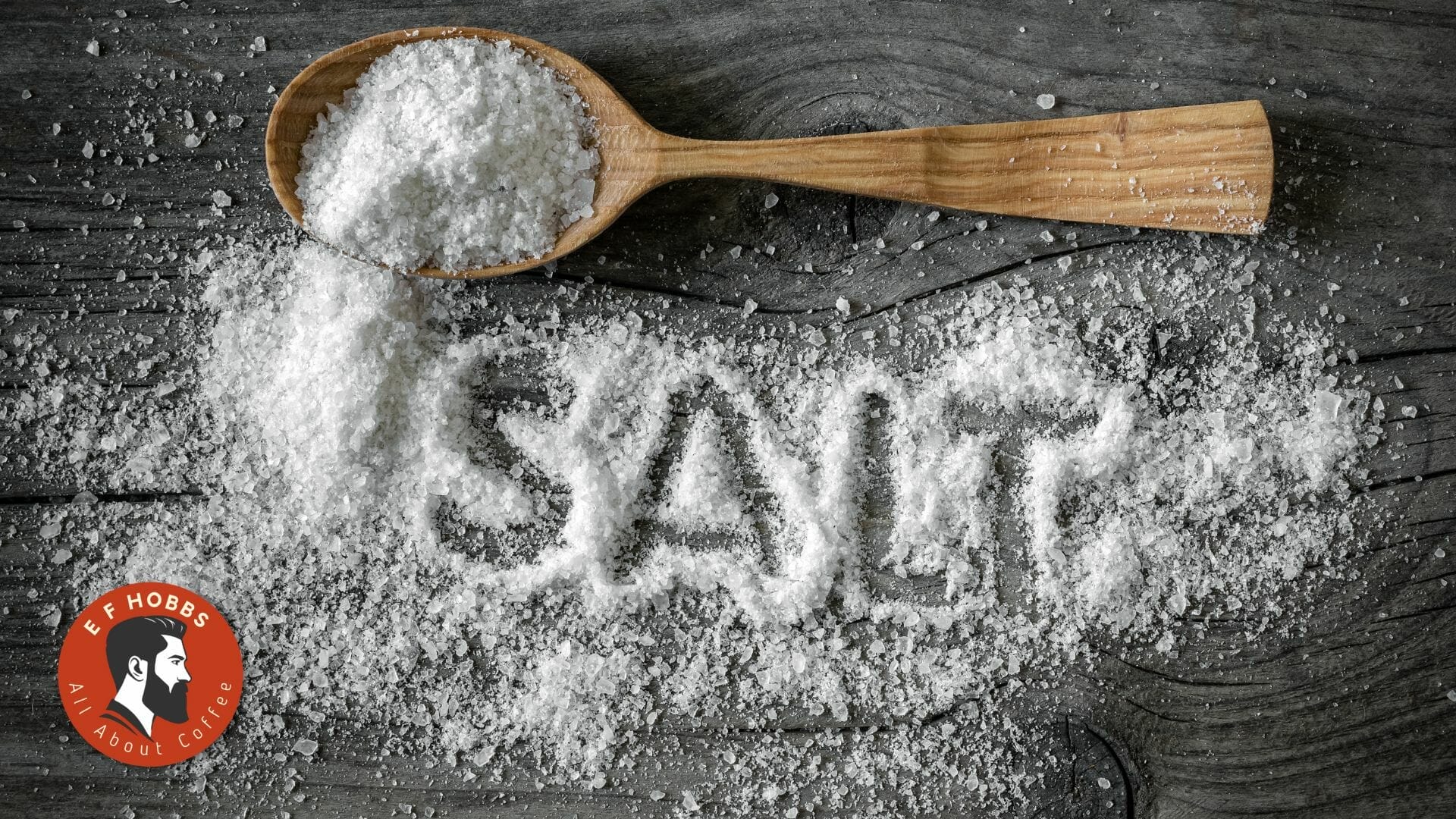Does Salt In Coffee Reduce Acidity? – Find Out Now !!!

Coffee is indeed the fuel that kickstarts our day or keeps us chugging along during tiresome afternoons.
The vibrant taste and energizing aroma are just what many of us need to awaken our senses. But, regrettably, for some, the acidity of coffee can trigger unpleasant digestive issues.
One proposed solution that has captured the interest of coffee lovers is the intriguing Alton Brown trick – adding salt to coffee. Could this simple culinary tweak potentially tame the acidity of our beloved brew?
To explore the veracity of this claim, we first need to understand what sparks the acidity in coffee and how putting salt might alter its flavor profile.
By unearthing these details, we can then probe if salting our coffee truly diminishes its acidity.
Moreover, this could open up possibilities for those grappling with acid reflux or other similar concerns.
Let’s dig deeper into the captivating science of coffee acidity and how the much-talked-about Alton Brown trick may affect our cherished morning ritual of making coffee.
Adding salt to coffee? Sounds peculiar, doesn’t it? Well, how much salt is typically recommended, you may wonder.
And can it really make our coffee taste less bitter and more smooth? These are all thought-provoking questions that we’ll delve into, along with introducing alternatives such as less acidic coffees for those with a sensitive palate.
Let’s embark on this fascinating journey through the world of coffee, salt, and acidity.
Understanding the Acidity in Coffee
Understanding the tangy and bitter taste of your morning cup can make or break your day. Coffee is naturally acidic, which means it has a pH level between 4.5 to 6 (depending on how it’s brewed).
Acidity in coffee contributes to its flavor profile, and too much acidity can make coffee taste sour or even undrinkable.
That’s why brewing coffee requires precision and skill to balance the extraction process with water temperature, grind size, brew time, and other factors.
However, even with the best brewing methods, some people still find their coffee too acidic for their liking.
This is where salt in coffee comes into play. Some believe that adding a pinch of salt to their cup of joe can reduce its acidity level without compromising the overall coffee flavor.
But does salt really have an impact on acidity levels? Let’s explore this further in the next section about the impact of salt on coffee taste.
The Impact of Salt on Coffee Taste

You may be surprised to discover how adding a pinch of salt can transform the taste of your morning coffee.
Salt is known to enhance flavors in food by suppressing bitterness and enhancing sweetness.
This principle also applies to coffee, where adding salt can help reduce its perceived acidity and bitterness while enhancing the overall flavor profile.
The impact of salt on coffee taste is not solely dependent on the type and amount used but also on the brewing method.
For example, adding salt to cold brew or espresso may have a different effect compared to pour-over or French press methods.
However, it’s essential to note that adding too much salt can ruin the coffee’s taste, resulting in an overpowering salty flavor.
As such, it’s crucial to experiment with small amounts before settling on the right quantity for your preferred taste.
Moving forward into exploring how salt affects coffee acidity, we must first understand what acidity means when it comes to coffee brewing.
The Effect of Salt on Coffee’s Acidity
If you want to bring out the best flavors in your morning cup, try adding a pinch of salt – it can work wonders on balancing the bitter and sweet notes of your coffee.
But does it also reduce the acidity? The answer is yes. Salt has alkaline properties that can neutralize acid, which means adding salt to coffee can help reduce its acidity.
The effect of salt on coffee’s acidity largely depends on the brewing method used. For instance, if you’re using a French press or espresso machine, adding salt directly to the grounds before brewing can help balance out any acidic flavors.
On the other hand, if you’re using a drip brewer or pour-over method, it’s better to add salt after brewing as these methods tend to produce less acidic coffee.
It’s worth noting that while adding salt can reduce acidity in coffee, too much of it can give your brew an unpleasant salty taste. So go easy on how much you use!
FAQs
Final Thoughts
In conclusion, the intriguing debate surrounding the use of salt in brewed coffee and its effect on acidity has consistently engaged coffee enthusiasts for an extended period.
Some ardently advocate for adding salt to their regular coffee—a trick popularized by Alton Brown—arguing that it successfully neutralizes the inherently bitter taste of the dark roast coffee.
However, others counter this claim, stating that this salt coffee method disrupts the natural essence of the ground coffee beans.
Scientific analysis of the chemical reaction between salt and taste receptors reveals an interesting dynamic.
The presence of salt in coffee does indeed tone down the perceived acidity, acting as a magical agent that morphs an overly bitter coffee into a soothing and palatable drink.
This transformation is largely due to the reduction of the harshness of chlorogenic acid lactones found in coffee beans.
However, it’s important to note that adding salt to your coffee isn’t a universal solution for all coffee drinkers.
For those who aren’t fans of salty coffee or worry about a potentially stale taste, remember there’s no requirement to add it.
Ultimately, the optimal taste of coffee is highly subjective, varying drastically from one person to another.
So, whether you opt to sprinkle a pinch of salt or not, let your taste buds guide you in creating your perfect cup of coffee.
A light roast combined with high-quality coffee grounds can also provide a less acidic cup. Additionally, strategies such as mixing salt or baking soda into coffee grounds before brewing can induce a chemical reaction that helps reduce acidity.
The journey of coffee drinkers is deeply personal, involving various elements like coffee blends, specialty coffee, and coffee beans.
Whether it’s applying the Alton Brown method of adding salt or preferring a low acid coffee, coffee lovers are always in pursuit of the perfect brew.
Regardless of the health benefits, the ultimate goal is always to savor your favorite cup of coffee, bitter or not, with or without a dash of coffee salt.






